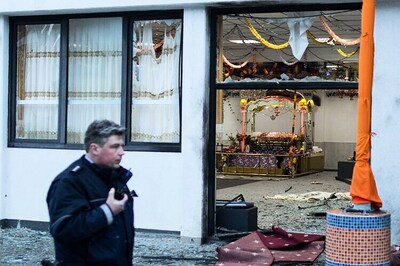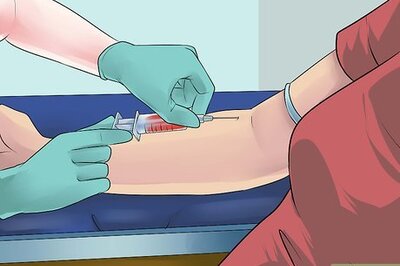
views
CHENNAI: It’s that time of the year when a cool dip at a decent pool could mean a lot to you. Heat buster as it is, it also helps you stay in shape. Chances are you already are a member of some swimming pool in the city — government-owned or private. But before taking the dive, pause for a moment and see if the management of the pool has the mandatory safety mechanism in place. For, many have lost their lives because safety parameters were flouted. And remember, just a couple of weeks ago a 15-year-old boy lost his life after struggling at the deep end of a private swimming pool in the city for want of supervision and awareness.Supervision is elementary in any pool, private or public, you would imagine. Yet, most of the deaths in swimming pools have occurred due to lack of parental and expert oversight. “Sometimes, parents just leave their children swimming at the shallow end of the pool thinking they would be safe. But children love to experiment. When the parent takes off his watchful eyes, they swim to the deeper end of the pool and some drown. Many even die of fear,” informs T Chandrasekaran, Madras District Course Officer, Sports Development Authority of Tamil Nadu (SDAT) as he instructs swimmers.Lifeguards play a major role in supervising those learning to swim, so they must be present at every pool. But in many cases there are either too few lifeguards to deal with the size of the crowd or, worse, no lifeguard at all. In fact, except for the pools under the control of the government, most public pools do not have qualified lifeguards with basic swimming and cardiopulmonary resuscitation skills to save lives.“More people than the pool can accommodate are trained in summer as many pool owners just look for income at this time. When the pool is too crowded, a person could just go under, swallow water, and if unnoticed for five to seven minutes, be in danger. A trained lifeguard is a must in any pool — public or private — as the coach cannot handle everything,” says a coach employed with the Chennai Corporation-run swimming pools, who does not wish to be named.“Unfortunately, many pools don’t have qualified lifeguards — and supervisors to keep an eye on the lifeguards on duty — since that would add to salary cost. Nor do they have first aid facilities,” the coach adds.If you think this is an over-reaction, check out what swimming champions — no less — have to say on the matter. Informs Kutraleeswaran, the youngest Arjuna awardee in the country, he was always under the watchful eyes of his coaches during his early days of training. A Guinness Record holder for swimming across six channels, Kutraleeswaran, in an email conversation from Russia, says: “Eyeballs were always on me when I was in the pool. Even before I joined a formal coaching programme, when I was seven my dad and I would frequent pools on weekends. I always had a tube around my waist and my dad would be with me all the time.” He also stresses that swimmers need to be aware their surroundings, especially the layout and depth of the pool.Until you become a professional swimmer, your presence in the pool must be supervised. Also, remember, do not ‘overswim’. If you can do, say, two laps, don’t stretch yourself further. The strain could be dangerous.“There should be a lifeguard who knows how to save others’ lives. Some people just panic when they go under the water. I have saved some six people in the pool,” says South Asian Games gold medallist M B Balakrishnan while training for an Olympic qualifier.So, next time you swim, ensure there is supervision. And yes, stay out of trouble. Life is too precious to be wasted for the momentary adrenaline rush. Look for alternatives if your pool’s safety system is inadequate.




















Comments
0 comment